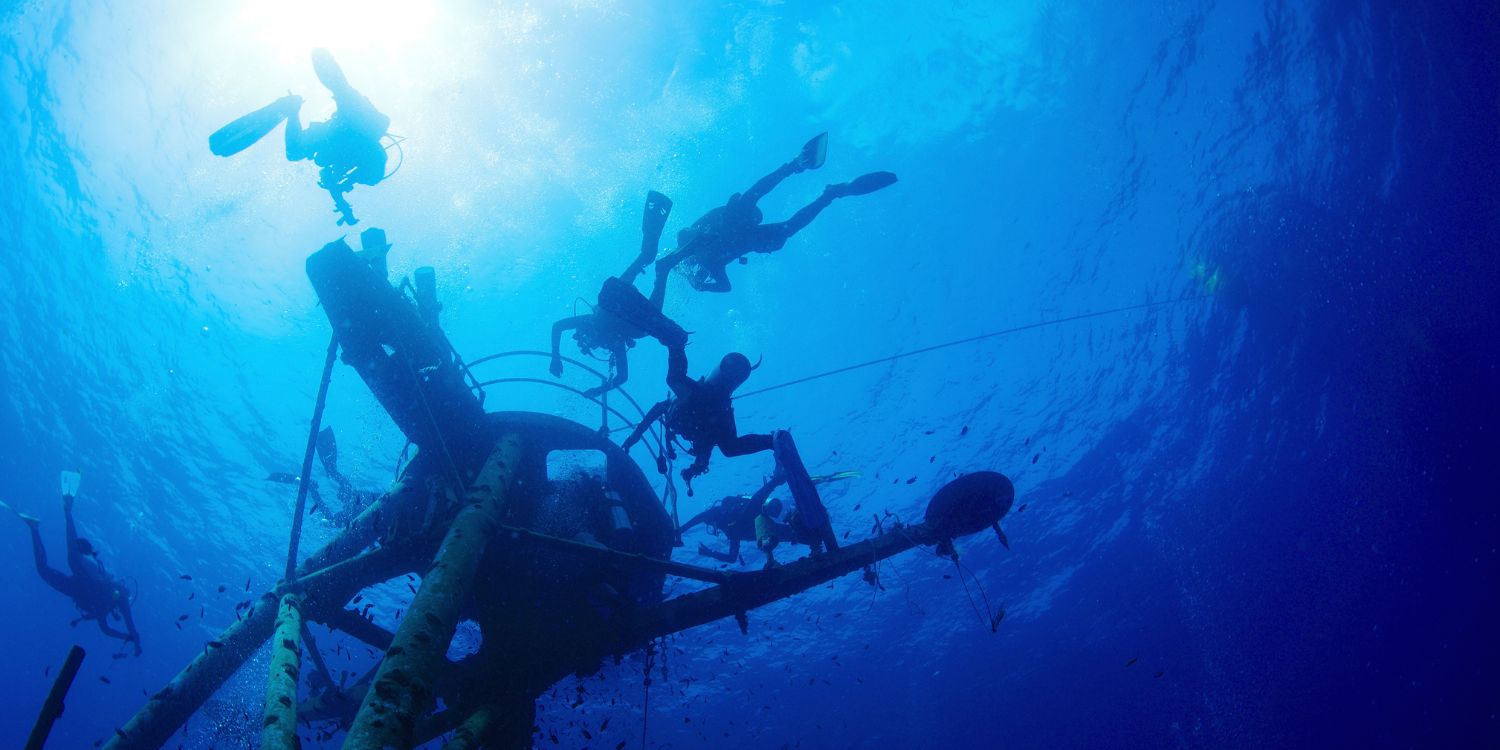Galveston Commercial Diving Accident Lawyer
Serious and Fatal Commercial Diving Accidents in Galveston

Our Galveston commercial diving accident lawyers understand that, of all maritime workers, divers may be at the most risk of serious or fatal injury. Understanding the hazards, maintenance contractors, and petrochemical companies that employ divers are required by law to adhere to strict safety standards and dive protocols. When negligent dive managers, crew members, or vessel owners fail to exercise proper precautions and a diver is injured or killed, this may form the basis for a claim for compensation under The Jones Act.
Jones-Shafroth Act
The Jones-Shafroth Act, more commonly called “The Jones Act,” is a section of the Merchant Marine Act that regulates maritime commerce in United States waters and ports. It also gave important new rights to maritime workers.
Several important rules and regulations established include:
- Requiring cargo going between United States ports must be hauled in a vessel that was built in the United States and is owned 75% or more by American citizens or corporations.
- Requiring crew members and employees on vessels to be American citizens or legally able to work in the United States.
- Regulating seamens’ health, accident, and disability benefits.
It is important to note that only “seamen” can seek compensation for injuries due to the negligence of an employer or co-worker under this act. To be considered a seaman to file a claim under the Jones Act, a worker must spend 30% of their time working on a vessel in navigable waters, must be a member of the vessel crew, or must also be someone working on a fleet of vessels by the employer.
The Jones Act provides coverage for any injury if the seaman can demonstrate that the employer or another accountable party played a partial role in causing their injuries. Not every commercial diver sits under the description of “seaman” and, therefore will not be protected by the Jones Act. They may still be protected under other maritime laws, such as the Longshore and Harbor Workers’ Compensation Act (LHWCA) and the Outer Continental Shelf Lands Act (OCSLA).
Protection Under the OCSLA or LHWCA
The LHWCA is a United States federal law that provides workers’ compensation benefits to certain maritime employees who are not covered by state workers’ compensation laws. This includes employees involved in oil and gas exploration, drilling, and production operations.
The OCSLA sets the broader legal framework for offshore activities on the outer continental shelf, which is the seabed and subsoil of the lands that are beyond the United States’ territorial waters. The outer continental shelf is often used for the extraction of natural resources.
The LHWCA, incorporated into the OCSLA, specifically addresses workers’ compensation for certain maritime employees of the outer continental shelf and ensures that workers on the outer continental shelf have access to compensation benefits similar to those covered in other maritime settings.
Diving-Related Injury and Claims
We have substantial experience in helping victims of diving injuries and other maritime accidents recover compensation on claims of negligence, including:
- Failure to monitor the rate of ascent
- Negligent air flow and oxygen monitoring and regulation
- Failure to conduct required physical and medical evaluation
- Required over hours diving or too frequent diving
- Failure to provide adequate safety and rescue
- Failure to properly treat or promptly evacuate an injured diver
- Failure to properly secure propellers
- Dive tender negligence or equipment failure
- Faulty dive equipment
- Improper use of decompression tables
Commercial diving accidents are commonly caused by negligent supervision, failure to follow safety procedures, improper training or planning, communication issues, faulty equipment, and unsafe working conditions.
Maritime jobs are often high-risk jobs. Saturation diving and underwater welding are two of the most hazardous commercial diving activities. Serious and fatal accidents occur with alarming frequency. Injured workers can still sue an employer even when they know the duties of the job are dangerous, as employers of high-risk jobs can be held liable when they cause conditions that injure the employee.
Injured divers and families who lost a loved one in a commercial diving accident might also have the option of seeking compensation in direct action against a third party whose negligence caused or contributed to the injury or loss.
Statute of Limitations
Once your injuries have been addressed, it is important to consult with an experienced injured diver attorney as soon as possible. The statute of limitations for Jones Act claims is typically three years from the date of the injury or accident, and claims under the LHWCA or OCSLA are usually within one year but may vary.
Injured divers who are treated well by their employers immediately following the accident may find that things change once their opportunity to file a negligence claim has passed. If you believe you have a valid claim but are concerned about the statute of limitations in your case, contacting an injured diver’s attorney as early as possible is essential. This may be the best way to protect your rights and understand your options.
FAQs
Q: What Is the Most Common Diving Accident?
A: There are many common diving accidents in Galveston, Texas. The most common injuries commercial divers can experience are ear and sinus injuries, decompression sickness, or “the bends,” drowning, hypothermia, physical trauma, musculoskeletal injuries, line entanglement, and chemical exposure.
Q: Do Commercial Diving Fatalities Happen Often?
A: While commercial diving can be dangerous, deaths are relatively rare. According to the Occupational Safety and Health Administration (OSHA), commercial diving has an average of 6 to 13 fatalities a year. This is a risk of 28-50 deaths per thousand workers over their careers. Fatalities and accidents are avoidable with proper training, equipment, adherence to safety protocols, and effective risk management.
Q: How Risky Is Commercial Diving?
A: Commercial diving is considered a high-risk occupation due to the unique challenges and hazards that come with underwater work. Divers may experience pressure-related risks, adverse environmental conditions, physical and psychological stress, emergency response challenges, and the potential for life-threatening equipment failure.
Q: Where Do Most Diving Accidents Occur?
A: They occur in various environments such as offshore oil and gas platforms, underwater construction sites, ship repair and maintenance yards, underwater welding operations, salvage operations, civil engineering projects, underwater inspections, and in harsh or remote environments such as the Arctic or the high pressure deep-sea.
Contact Our Galveston Injured Diver Lawyers
At Stevenson & Murray, we represent injured divers in Texas, throughout the Gulf Coast, and nationwide. Our capable attorneys offer sound legal advice and experienced representation to divers employed by U.S. companies operating in the Persian Gulf, North Sea, Asia, Africa, Australia, and around the world.
We stand up for your rights and fight for your recovery after a diving accident resulted in serious injury or wrongful death. We invite you to contact our Galveston injured diver lawyers at (866) 936-3542 to discuss your diving injury case in a confidential and free consultation.
You may also contact us by email for more information or to request an appointment.

Get Help Today
Request a Free Consultation
"*" indicates required fields

